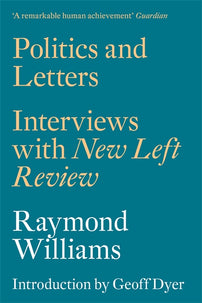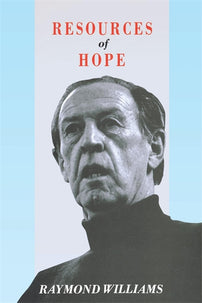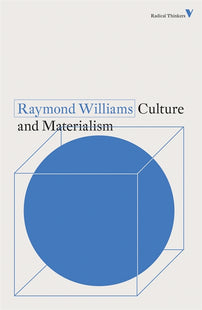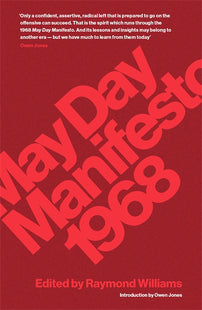Crisis, Which Crisis? Climate Change and Capitalism
An extract from the Introduction to this year’s Key Words: A Journal of Cultural Materialism, the journal of the Raymond Williams Society. Robert Spencer and Christopher Vardy are editors of the special issue on ‘Crisis’ and argue below for urgent critical, theoretical, and political questions to be posed to greater understand how crises are understood and narrativized.

Key Words 17 is out this autumn; to receive a copy please join the society or renew your membership by 31st August 2019. It includes essays by Daniel Gerke on Raymond Williams and Antonio Gramsci, Robert Spencer on James Kelman and post-work, Christopher Vardy on Colson Whitehead and climate change, Amy Rushton on mental health and the Manic Street Preachers, and former RWS Essay Prize winner Ryan David Furlong on nineteenth-century working-class autobiography and William Dodd.
The essays compiled in this special issue of Key Words address the theme of crisis. But which crisis? The soberingly extensive congeries of crisis explored, including the mental health crisis, the crisis of liberal and/or neoliberal hegemony, the crisis of democracy, the migrant crisis, the crisis of consumption, the protracted crisis since 2008 of financialised capitalism, the long-drawn-out crisis of profitability that befell the capitalist mode of production around 1970 (what Robert Brenner calls ‘the long downturn’), plus of course the accelerating and potentially cataclysmic ecological crisis that portends the uncontrolled heating up of the Earth’s atmosphere and the mass extinction of species (including potentially our own), demonstrate that the deceptively straightforward-sounding term ‘crisis’ has, if not numerous different meanings, then certainly numerous different applications.
So what is a crisis? A crisis is a decisive moment of rupture or emergency when something, a social or economic system most obviously or perhaps an ideology or an established set of practices and assumptions, seems incapable of reproducing itself and appears consequently on the verge of being transformed into something else. But what connects the various crises mentioned above? What has brought them about? What do these crises presage? Correction? Collapse? Transformation? And what or rather whose interests are at stake when something is dubbed a crisis? These are political, but also critical and theoretical questions. What this introduction, and this special issue, tries to accomplish is to pause, to reflect and examine what is at stake when crises are announced, organised, narrativised and named.
Crises are of course not purely discursive; they have material origins and consequences. When a giant Ponzi scheme in the housing market began to totter in the United States in 2007, leading to a potential domino run of failing banks with bad debts across the globe and prompting governments to purchase bank liabilities with trillions in public money, people lost their homes, pensions and livelihoods and before long they also lost vital public services and rights at work when governments used state indebtedness to justify swingeing ‘austerity’ programmes. People also became angry, occupied squares, revived moribund socialist parties, or turned to resurgent anti-immigrant and even fascist parties. This particular crisis was brought about when a system (capitalism) yet again came up against its own limits, an inability to profitably absorb the vast amounts of surplus capital that were instead invested in asset value speculation and all manner of risky ‘instruments’ such as stocks, futures, derivatives and collateralised debt obligations. Similarly, when the ecosystem began to reach its limits, when the concentration of carbon dioxide in the Earth’s atmosphere reached 400 parts per million and average global temperatures rose to one degree above pre-industrial levels, then glaciers melted, sea levels rose, ocean acidification gathered pace, desertification accelerated, hurricanes intensified, aquifers were depleted and crops failed. These processes are intensifying; so are the number of people suffering, fleeing and perishing as a result.
Crises are never just a simple product of, or just a form of, narrative. However, analysing the ways in which crises are discursively produced is crucial, not least because the act of definition, of announcing a crisis, naming it and intimating its historical causes, is often an attempt to define the ‘common sense’ political possibilities for solving it. In Britain, the financial crisis of 2008 was not met with a project to nationalise the too-big-to-fail banks and turn them into public utilities for allocating investment. The crisis was not defined by the previously vanquished or AWOL Left as a crisis of financialised capitalism. Against all the evidence, it was announced and defined by a resurgent Right as a crisis of confidence on the part of ‘the markets’ and the credit-rating agencies in a top-heavy British state that was spending too much, particularly on welfare.
In the same way the ecological crisis, which nobody credible can now dispute is anthropogenic and is gathering speed, is too often defined as a crisis caused by humanity as a whole and not by particular ruling groups empowered by a particular and highly irrational way of organising production. What is crucial, again, is who names the crisis. Is this a crisis of capitalism, as John Bellamy Foster and others have argued? Or is it a crisis caused by an undifferentiated Homo sapiens and their inhabitation of the Earth? The idea that we have passed from the Holocene to the new geological epoch of the Anthropocene is increasingly accepted. This – our – unfolding epoch is characterised by substantial human impact on biodiversity and ecosystems, and principally by the exponential heating up of our planet’s atmosphere. As Adam Trexler persuasively argues, the Anthropocene as concept ‘productively shifts the emphasis from individual thoughts, beliefs and choices to a human process that has occurred across distinct social groups, countries, economies, and generations: the wholesale emission of fossil fuels that began in the Victorian period and has intensified through the present day.’[1] While ‘climate change and global warming are easily bracketed as prognostications that might yet be deferred, […] the Anthropocene names a world-historical phenomenon that has arrived.’
Yet the Anthropocene is a highly contested concept. Depending on how this ‘human process’ is theorised and historicised, it can be used to confer human agency with one hand but snatch political analysis and possibility away with the other, rightly (but far too inexactly) declaring humans to be the cause of climate change while advancing the defeatist equation that Humanity + Earth = Global Warming. Timothy Morton’s popularisation of the Anthropocene narrative in Being Ecological, for example, insists that there is no hope for addressing the crisis. ‘That would require being able to reverse time and return at least to 10,000 BCE, before humans set the agricultural logistics in motion that eventually gave rise to the Industrial Revolution, carbon emissions and therefore to global warming and mass extinction.’[2] For Morton, it seems, the cultivation of cereal crops in Neolithic villages gave rise inevitably to the development of fossil fuel capitalism. This is a vision of human history denuded of all agency and contingency. Morton dismisses as naïve anthropocentrism the desire to actually do something about global warming. The correct response to the mass extinction of species is not to communicate facts about it or pursue a ‘global revolution to dismantle the structures that are polluting the biosphere’ (p. 17) since these courses of action betray a faith in the possibilities of human knowledge and action that Morton’s version of ‘object-oriented ontology’ has ruled out of court.
But if the problem is simply Homo sapiens and not the particular and rectifiable way in which that hominid species has been organised socially and economically to view the living world as a tap (for resources) and a sink (for the disposal of waste) then the apocalypse gong might as well start sounding. In Andreas Malm’s words, uncritical ‘species thinking on climate change conduces to paralysis.’[3] To view the crisis of global warming as a crisis caused by the species itself as an abstracted collective agent that is incapable of not destroying its own planet is either to throw in our lot with dubious geo-engineering palliatives such as sending giant mirrors into orbit and constructing huge ocean pumps to encourage carbon-dioxide-absorbing algae or it means surrendering to post-environmentalist resignation à la Paul Kingsnorth.
This kind of Anthropocene narrative has no answer to the question of why, if an undifferentiated anthropos is responsible for burning fossil fuels in sufficient quantities to heat up the planet’s atmosphere, it didn’t do so before 1800. Nor can it help us to visualise and negotiate the complexities of a situation in which some humans burn more than others, half of the world’s carbon emissions being produced by the richest ten per cent while the poorest 3.5 billion make up a mere tenth. The existential crisis of global warming actually has its origins, as Malm maintains, in the capitalist mode of production in its industrial phase (endless growth and accumulation predicated on the growing consumption of fossil fuels). The originator of this crisis is not ‘humanity’, which has never existed as a collective agent, but particular groups of wealthy and powerful men. Since the early nineteenth century (first in Britain and then elsewhere) these groups have found it much easier to accumulate capital by abandoning the unpredictable and cooperative technologies of water and wind power. They instituted a method of powering machinery (initially coal-fired steam power as well as natural gas and petroleum) that, if not always cheaper, was certainly more dependable and in a variety of ways more conducive to the concentration and disciplining of populations of workers.
That is not to say, of course, that before 1800 and even before the origins of European capitalism in the fifteenth century the behaviour of human beings did not have very harmful effects on the living world and the climate. But ours is the unprecedented epoch, since 1800, when average global CO2 has increased from around 280 to over 400 parts per million, in which certain humans at the bidding and in the interests of an even smaller minority of humans, began on a vastly increasing scale to, in Malm’s brilliantly defamiliarising phrase, dig up the remains of fossilised plant matter and set fire to it with the result of catastrophically heating up their own planet.[4] To explain global warming by traits such as the command of fire is to obfuscate its origins and acquit the culprits, to use Malm’s terms. It was not caused by some universal or intrinsic trait of Homo pyrophilis, the fire-ape, in Mark Lynas’s dangerous term.[5] Capitalism causes global warming. Malm shows how the recovery from the long slump of the early nineteenth century in the all-important British cotton industry required a technological restructuring facilitated by an extraneous energy source: with the aid of coal-fired steam power capital ‘smashed the unions, re-established proper hierarchy, extracted more output out of fewer workers at lower cost’ (Malm, Fossil, p. 68). Thus the pattern of fossil capitalism was set: labour, with all its propensity to shirk and rebel, could be vanquished by machines that did neither. Indeed it is now increasingly obvious that a transition beyond fossil fuels also requires a transition beyond capitalism, at least in its current iteration. A low-carbon future of solar and wind power requires large-scale planning and coordination in addition to the expropriation of the energy cartels and their assets. The transition is likely to necessitate state investment via public banks with massive lending capacity and therefore a wholesale restructuring of the financial sector. These acts are simply unimaginable under the prevailing economic system.
The ecological crisis, seen in this way, becomes perceivable and narratable as a crisis of capitalism. Malm’s latest project, then, is to assert the primacy of the historical and therefore also of the political in our understandings of crisis, which is also what we want to do in this special issue. The point of historical materialism is to shift our attention ‘from nature to history, without denying the ontological priority of the former’, in John Bellamy Foster’s words. Historical materialism focuses ‘overwhelmingly on the historical development of humanity and its alienated relation to nature, and not on nature’s own wider evolution.’[6] Stressing the importance of humanity’s historical development is not the same thing as denying nature’s tremendous power or controverting human society’s dependence on nature (not least because that power is being intensified by anthropogenic climate change and that dependency made more precarious by it). To say, as Malm does, that we must focus urgently on ‘the historical development of humanity and its alienated relation to nature’ is a million miles from saying that humanity is superior to and entitled to enslave nature (for climate change and the coterminous mass extinction of non-human species makes us starkly aware that we are not) or that human society isn’t part of nature (for the ferocious blowback of higher temperatures and sea levels makes us starkly aware that it is).
‘Nature no longer runs the Earth’, writes Mark Lynas. ‘We do’ (p. 8). Leaving aside for a moment the question of whom that ‘we’ refers to, let us predict that if the warming of the planet, caused but hardly controlled by humans, continues at current rates then Lynas’s glib contention is about to be disproved on a planetary and even existential scale. Only by stressing the interaction or ‘metabolism’ of humanity with nature through production can we prevent this grim scenario from coming to pass. We must imagine and then organise a different, less violent and exploitative form of ‘metabolism’, that is, sustainable or renewable methods of production: in a word, decarbonisation, which, as we are claiming, is impossible without the socialisation and democratisation of economic power. This is a political task, in short, one that will be left to humans. That is because, unlike the climate, say, or black rhinos or honey bees, humans possess agency, including collective agency, which is to say, intention and therefore the capacity to grasp and forestall the calamity of global warming that humans alone have unleashed. Meteorological phenomena such as catastrophic storms possess agency only in the minimal sense that they make things happen but not agency in the stronger sense that we must dearly hope humans, with their yet unrealised potential to imagine and envision a post-carbon social and economic system, have agency. Only humans, capable of reflection, intention and concerted political action, can seize democratic control of their societies and economies before scrapping the oil platforms and closing down the mines.
Robert Spencer is Senior Lecturer in Postcolonial Literatures at the University of Manchester. He is the author of numerous articles on postcolonial and modernist writing and theory. He is currently working on a study provisionally entitled The Cultural Logic of Post-Capitalism.
Christopher Vardy is a lecturer at the University of Manchester. He is writing a book exploring figurations of Thatcherism and the End of History in twenty-first-century British culture, and has published articles on the relationship between nostalgia, materialism, and adolescence in British historical fiction; the figure of the abused child as a metaphor for historical change; and the political significance of dystopian narratives about the 1980s. He also co-edited the collection Rupert Thomson: Critical Essays (2016).
[book-strip index="1" style="display"]




